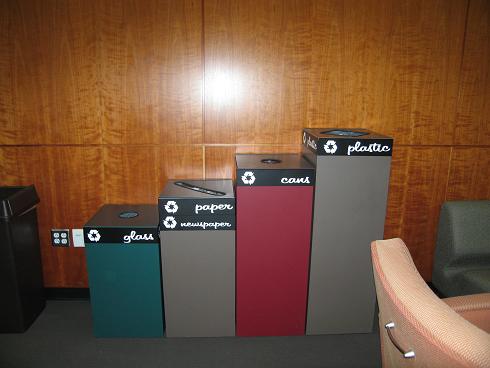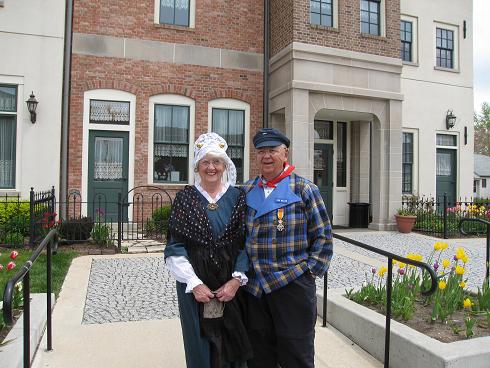Well, our buying a car is not really an important part of the world’s economic problems, but like most Americans, we have been mostly unconcerned about the cost of operating automobiles, both in an economic and an environmental sense1. In our defense2, our small town of Pella has no public transportation within the city or to outlying cities where one might want to shop or attend a movie, etc. Cars are about the only way to meet transportation needs. But, in the past few years the price of gasoline nearly doubled, alternative fuels3 have been developed, service, tires and repairs for cars have increased greatly, and we all have been urged to help solve environmental problems which are, to a great extent, due to emissions4 from automobile, truck and bus engines.
Until recently we had three family cars even though our garage has room for only two. We have three adult drivers, only one of whom needs transportation to work each day.
Before Maxine and I retired from full time teaching, we both often had need for a car to attend meetings, shop and run errands5, etc. However, when we retired, gasoline was inexpensive, our cars were not new, and it was less expensive to pay registration and insurance fees each year on the older cars. It was convenient to know that a car was available to each of us when needed
Last year we began to consider ways in which we could reduce our car expenses and concurrently6 be more environmentally involved. We decided it was time to give up one car and do what was possible to aid environmental situations. Our oldest car was 13 years old, the 2nd was 7 years old, and our newest one was 3 years old. Our logic7 was that we should either sell or trade8 the oldest car because of its high mileage, and we should keep our 7-year old car because it had the lowest mileage of the three, was a bit smaller and easier to park for local use. Our newest car would probably bring a fair price if traded. As it happened, we could more easily trade two cars in for a newer car than we could sell or trade either of them separately.
Especially at times of economic recession9, neither the car dealers nor the car owners want to lose money on a trade or purchase, so there is an understandable bargaining process10 whenever a sale is considered. We have learned over the years to welcome this bargaining. It involves not only the potential buyer and the one dealer, but also dealers competing with other dealers, as well as with the buyer. In some ways there is an advantage in buying from one’s local dealer, because it is easier to arrange for servicing and repair without driving to a more distant dealer. It is also a good idea to support local businessmen if one hopes that they in turn11 will support community activities in which we all are interested, i.e. schools, recreational and sports activities etc.
In our specific case, the bargaining process took several hours and the final result was that we received what we felt was a fair trade-in12 price for our two cars; the dealer felt that we had been reasonable in our suggestions, and we agreed to buy a 2008 model which has the “Flexfuel” type engine13. Because of the current interest in developing ethanol14 as a less-polluting fuel, the state of Iowa subsidizes15 ethanol/gas mixtures which a flexfuel engine can use. 85% ethanol costs about $2.00/gallon, 15% ethanol costs about $3.50/gallon, and regular gasoline about $3.65/gallon. We can reduce pollution by driving our new car, can help support farmers and companies who grow corn and other crops to make ethanol, and can eliminate the cost of upkeep16 on our cars by cutting back to two cars. This will help the transition17 from gasoline to more clean-burning fuels. At the same time, the local car dealer has sold a car during an extremely difficult market situation18.
It is likely true that “Flexfuel” engines and hybrid-cars19 are only transitions from current to other alternative fuels. Hydrogen fueled cars are being developed, and when these are available, drivers will finally have cars which eliminate nearly all harmful “greenhouse gases,” and have a plentiful source of energy that could be less expensive. Hydrogen is abundant20 and does not require access to21 oil supplies which are non-renewable22. Meantime, we will reduce car costs in any way we can, and that includes not using a car when a bicycle ride or walking is possible.
We know that ours is only a tiny contribution to much larger environmental and financial problems, but, if everyone makes even small changes, great progress can be possible.
Notes:
1. both in an economic and an environmental sense: 既从经济又从环境的角度来看. Here the word “sense” means a way of thinking about or understanding something.
2. in our defense:为我们(买车一事)辩护.
3. alternative fuels: combustible sources of energy to run engines other than those derived from petroleum (非传统燃料,可替代燃料).
4. emissions: gases or other substances that are sent into the air (排放物).
5. run errands: 办差使,跑腿
6. concurrently: at the same time; with more than one thing happening at a time (同时).
7. logic: a methodological way of thinking in a reasonable way with good criteria (逻辑推理).
8. trade (in): give something old as part of the payment for something new (折价换购).
9. economic recession: a situation in which economic activity is unusually low (经济衰退).
10. bargaining process: an activity in which two or more individuals attempt to
reach an agreeable price to be paid for some item or service (讨价还价过程).
11. in turn: as a result of something that is part of a connected series of events (结果,反过来).
12. trade-in: something such as a car or piece of equipment that you give as part of the payment for something new (折价物,折价品).
13. “Flexfuel” type engine: an automobile engine which can burn either gasoline, or
a mixture of other fuels, in this case mixtures of ethanol (ethyl alcohol) (能使用混合燃料的发动机).
14. ethanol: 乙醇
15. subsidizes: pays some of the cost of goods or services so that they can be sold to other people at a lower price (给……津贴/补贴).
16. upkeep: the process of keeping something in good condition (维护).
17. transition: a change from thing to another (过渡).
18. extremely difficult market situation: a condition of the economic situation at a given time (非常困难的市场形势).
19. hybrid-cars: cars with a part gasoline and part electrical engine (混合动力汽车).
20. abundant: available in large quantities so that there is more than enough (丰富的).
21. access to…: the right or opportunity to have or use something (对……的享用权/享用机会).
22. non-renewable: unable to be renewed (不能再生的).


